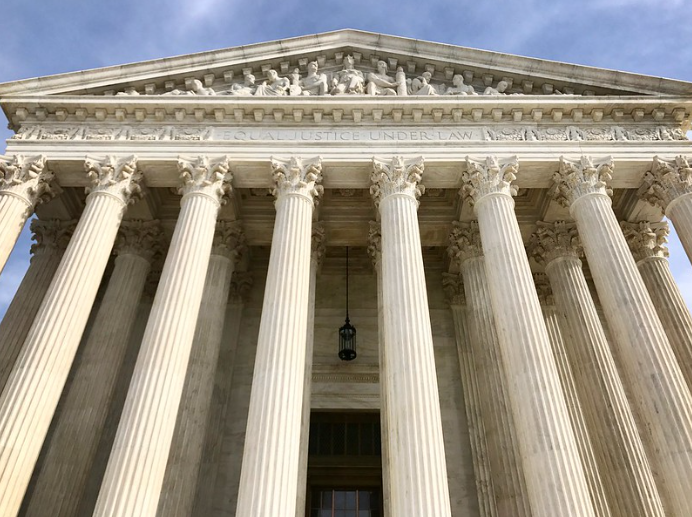The U.S. Supreme Court heard oral arguments last Tuesday in an important religious freedom case named Groff v. DeJoy. This case could substantially increase protection for religious freedom in the workplace, excellent news for the many Alabamians fired for declining a COVID-19 vaccine on religious grounds, some of whom can still bring lawsuits to vindicate their rights.
Gerald Groff is a Christian who worked for the U.S. Postal Service (USPS). You may have noticed that USPS recently started Sunday delivery. USPS tried to force Groff to work on Sundays, but he believed he needed to take the Sabbath off. When he had trouble swapping shifts with other coworkers, USPS fired him.
Title VII of the Civil Rights Act provides generally that if an employee’s need for a religious accommodation clashes with what the workplace requires, then the employer must grant him an accommodation unless doing so would impose an undue hardship on the employer. The Supreme Court defined undue hardship in the 1977 case of TWA v. Hardison as anything more than a de minimis requirement.
You don't have to be a lawyer to see that this guts what Title VII requires.
Groff is asking for Hardison to be overruled and for some kind of substantial-hardship test to replace it. The government actually agrees that the de minimis test doesn't do justice to the statute and that clarification is needed, but it wants to revise it as little as possible.
After listening to the oral argument, I think we are going to see the ball move down the field in favor of religious freedom in the workplace. The question is whether it's going to be a first down, a field goal, or a touchdown.
I think the justices’ biggest concern is how to define "undue burden" if the de minimis test is abandoned. Many of them want a bright-line test, but both parties agree that "undue hardship" is going to be context-dependent. Thus, while the Court can give some clarification of what "undue hardship" means, it's not going to be able to clarify how that works in every case. While that's unfortunate, I must agree that Congress could have defined "undue hardship" with more precision.
From what I can tell, Justices Thomas, Alito and Gorsuch are more sympathetic to Groff’s position. Gorsuch might not go as far as Thomas and Alito, but it seems this bloc would be in favor of abandoning Hardison’s de minimis test, significantly strengthening religious freedom.
The second bloc, I think, is Chief Justice Roberts, Justice Kavanaugh and Justice Barrett. Kavanaugh and Barrett seem particularly concerned about the effect on employee morale if religious employees get special privileges and that this would lead to mass quitting, which of course would be an undue hardship. But with respect, that sounds to me like a Heckler's Veto.
To their credit, though, I think they spotted this issue toward the end of the argument, getting the government to concede that people being upset isn't a valid objection. Roberts doesn't seem to share Kavanaugh and Barrett's objection, but once again, he seems torn between wanting to see religious freedom win and protecting the Court's image by issuing a narrow decision if possible.
The third bloc is the liberals. Justice Jackson, to my surprise, seemed to agree with the petitioner that something must be off if "undue hardship" in the context of the Americans with Disabilities Act has far more protection than it does in Title VII, but she also wondered whether the Court should leave it to Congress to fix. Justice Kagan hit stare decisis hard, but since both parties agree that the de minimis test is inadequate, the Court does not seem to share her concerns. And Sotomayor seems like, well, Sotomayor.
The Court should issue its decision by June. Because of the quick turnaround and the fact that it's significantly behind on getting its other opinions out, I don't think there will be a ton of back-and-forth negotiation on this case. So, if you're praying for a huge win for religious freedom, pray that whoever writes the first draft of the opinion goes for the touchdown and persuades the others to go along with him or her.
Religious liberty is our first freedom. Americans have long believed that, to the greatest extent possible, we should not force people to choose between obeying God (as they understand their religious obligations) and obeying men. The good news is that the Court appears ready to do more to respect religious freedom than Hardison did. Let’s just pray that they do the statute justice so that Americans can have meaningful religious-freedom protections in the workplace.
Matt Clark is the President of the Alabama Center for Law and Liberty, a conservative nonprofit law firm that fights for limited government, free markets, and strong families in the courts. His column appears every Friday in 1819 News. The opinions expressed in this column are those of the author. The views and opinions expressed here are those of the author and do not necessarily reflect the policy or position of 1819 News. To comment, please send an email with your name and contact information to Commentary@1819News.com.
Don't miss out! Subscribe to our newsletter and get our top stories every weekday morning.










